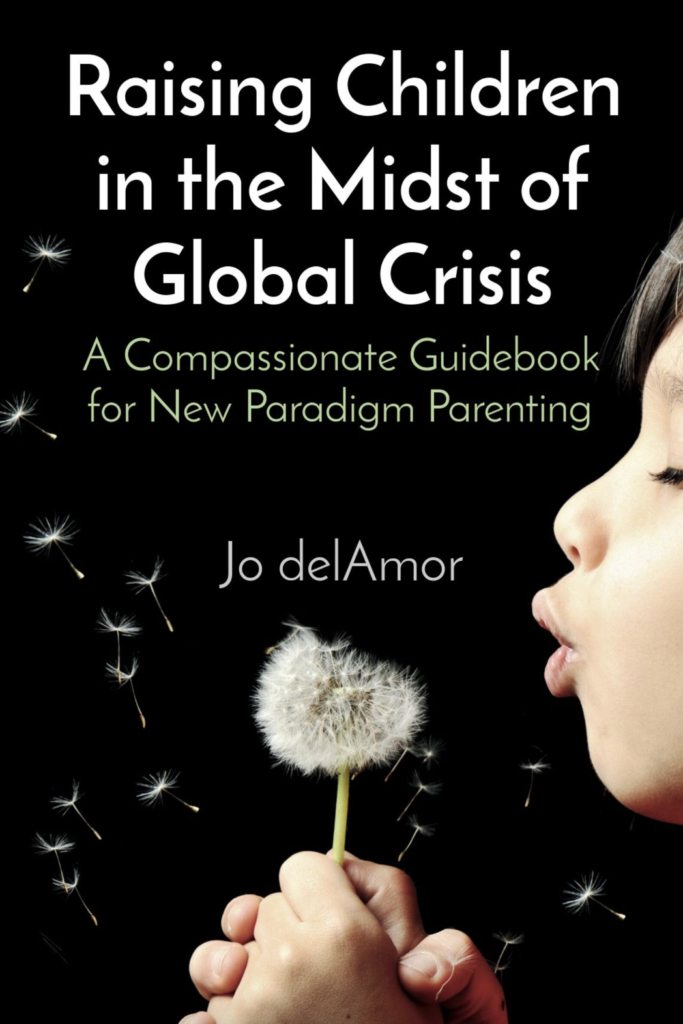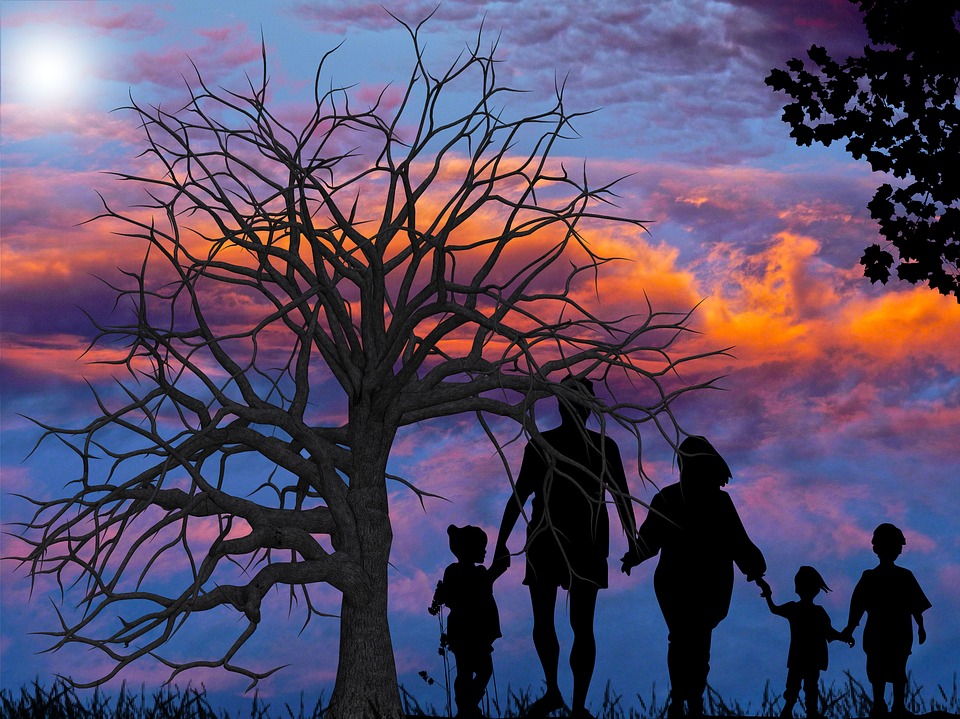This blog post is an excerpt from the forthcoming book “Raising Children in the Midst of Global Crisis: A Compassionate Guidebook for Parenting in Turbulent Times” by Jo delAmor
Joanna Macy, wise eldress, scholar and root teacher of the Work That Reconnects, describes the situation we’re living in through the lens of a few different stories that define our current reality. Two of those stories are ‘Business As Usual’ and ‘The Great Unravelling.’ These stories operate side by side, simultaneously, on a global scale and in our personal lives.
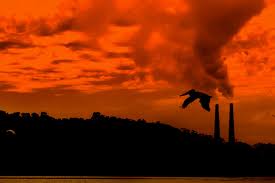
Business As Usual is the story of the status quo within what Joanna Macy calls the Industrial Growth Society. It is ‘the way things are.’ It is the water we swim in. It is the cultural paradigm that runs our world. It is the underlying assumptions and biases we carry and aren’t even aware of. It is the indoctrination we receive from our major institutions of government, industry, media, education, etc. It is the sense that things have always been pretty much like this and they couldn’t really be otherwise. It is the sense that things will continue on in generally the same manner, with developments and innovations in technology, of course, because perpetual growth and development is one of the pillars of Business As Usual. It is the assurance that any dip in the stock market or natural disaster is just a temporary setback and everything will quickly be restored to normalcy once we get through it. It is the “follow the rules and do your best and everything will work out alright for you.” It is the just getting by and making ends meet, day by day. It is the will to wake up and try again tomorrow. It is the trying to fit in and keep up with the neighbors. It is the focus on the next quarter’s bottom line and the results of the next big political election.
The Great Unravelling is the story of collapse and crisis. It is the deadly rise in global temperatures and ensuing climate chaos. It is the extreme frequency of hundred year floods, catastrophic hurricanes and devastating wildfires. It is the millions of people in the streets of cities around the world protesting injustice and corruption. It is the millions of people in the streets because they can’t afford a roof over their heads and the millions of people that have to work two or three jobs just to barely scrape by to keep a roof over their own heads. It is the torrent of climate refugees and political asylum seekers fleeing unlivable circumstances of violence, persecution and destruction. It is the continuing regularity of mass shootings in our schools, houses of worship and public spaces. It is the very rapid increase of suicide attempts and suicidal ideation in children as young as five years old. It is all that is precious in our world falling apart. It’s the unsustainable practices of Business As Usual revealing just how unsustainable they are.
Both of these stories are very real and actively playing out in our world. We hold these two stories with tension in our hearts and daily lives.
If we’re living and raising our children within lifestyles of relative comfort it can be incredibly hard to allow the Great Unravelling to fully land in our consciousness. When there’s a roof over your head and food in the refrigerator it is difficult to acknowledge that you and your children (and the rest of the beings on the planet) are in imminent, life-threatening danger. We’re like the fabled frogs boiling in a pot on the stove. If the frogs had been thrown suddenly into boiling water they would have jumped out right away. But if they are set in lukewarm water and the temperature slowly increases to the point of boiling they’ll just hang out and let themselves get boiled to death.
Each year our collective situation becomes more dire and the Earth gets hotter, in increments that we adjust to, just like those frogs in the pot. As I write this book, here in the early months of 2020, NASA informs us that Antarctica is getting hit by a glacier-melting-heatwave that brought its temperature up to “64.9 degrees Fahrenheit — matching that day’s temperature in Los Angeles.” Likewise, NOAA reports that, “In the span of 141 years of climate records, there has never been a warmer January than last month” (Jan 2020) and “the five hottest Augusts on record have all occurred since 2014.” News of catastrophic climate change has almost become commonplace in the last twenty years. We hear it but it fails to penetrate the trance of Business As Usual in any significant way.
As I complete the writing of this book, in March of 2020, the Coronavirus is spreading across the face of the globe quite rapidly and causing the largest disruption of Business As Usual that I’ve ever experienced or witnessed. Of course, I don’t know what will happen between this moment I’m in as I write and the moment you’re in right now as you read this book. I don’t know the extent of the devastation that may occur or whether the global economy will bounce back and pick up where it left off with Business As Usual.
But, here in this moment, we’re experiencing the most massive, worldwide disruption of almost every facet of our economy and society that we have ever experienced, bringing the Great Unravelling and Business As Usual squarely into the spotlight.
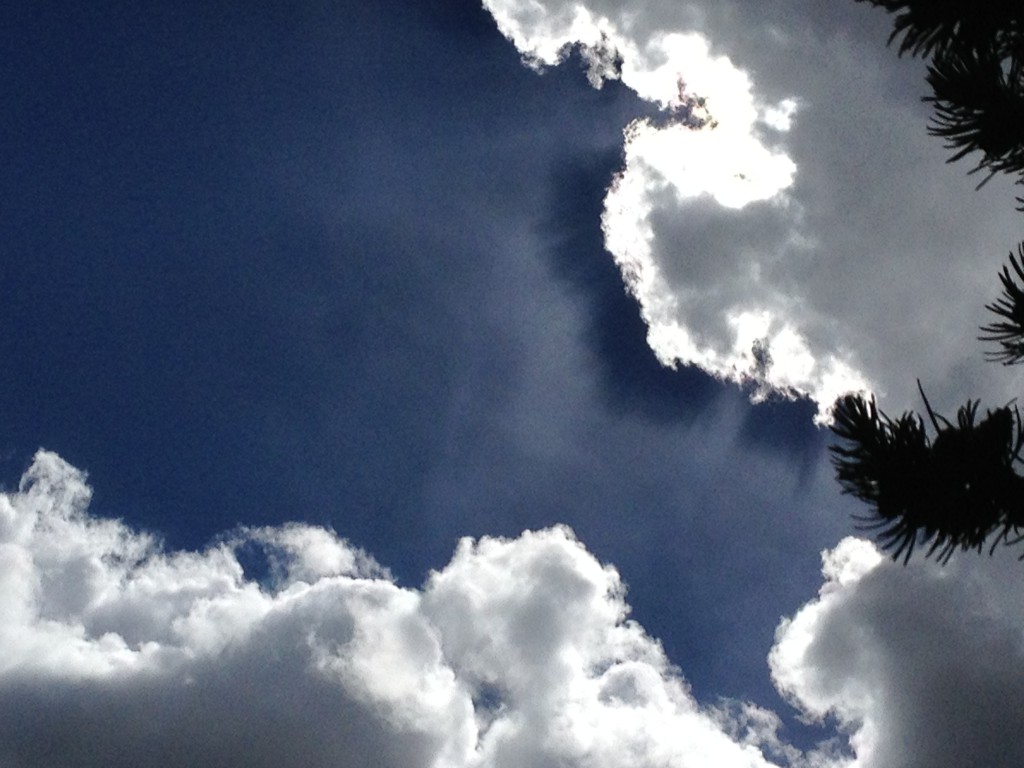
We are being told to refrain from our “normal activities” from gathering in crowds to going to work and school. The whole world is on a sort of forced holiday (or some may say Holy days). In my adult life I’ve become quite accustomed to “emergency announcements,” as I’m sure you have, as well. End of the world predictions and major catastrophes seem to come and go and somehow Business As Usual keeps chugging along. It’s obsessive. Determined. Maniacal. But, so far, this virus has interrupted Business As Usual across the entire world more than anything we’ve experienced. It is showing us how radically interconnected we are and how we can choose to pull out of the Business As Usual frenzy if we have to. And it’s showing us that when we do it has a huge impact.
China’s response to the sudden outbreak has been rapid and wide scale quarantine. The resulting slow in factory production has been enough to significantly reduce greenhouse gas emissions and reveal clear skies over the cities for the first time in many people’s lives. Air travel has been suspended to many locations and new restrictions are being announced every day. The stock market is in a free fall. Schools have been canceled. Businesses have closed their doors. People are staying at home with their families.
The Vatican has cancelled all masses for at least a month, including public participation in Holy Week and Easter services. Saudi officials have banned all pilgrimages to Mecca and Iran has canceled Friday prayers in major cities. Disney’s theme parks have been closed for only the third time in their history (the other two times were just after the assasination of JFK and just after the 9-11 attacks). The St. Patrick’s Day parade in New York City has been postponed for the first time in its 258 year history. Broadway has shut down.
Until now, the individual symptoms of the Great Unravelling have either been isolated to specific regions or they have been happening just gradually enough for us to adjust to. We’ve been able to maintain a certain amount of denial about the urgency of our situation. We’ve been gradually stewing in our frog pot of Business As Usual because it’s the only thing we know and the thought of jumping out has seemed impossible. But this pandemic has shown us what it might look like to collectively shake loose of the habits of Business As Usual. Even if the changes it caused prove to be temporary, it has broken the spell of inevitability that we’ve been caught in day after day, year after year, generation after generation. We have had a glimpse of what could happen if we made different choices on a global scale. This pandemic and the countless other converging global crises we are experiencing are the consequences of Business As Usual gathering around us like the water coming to a boil in our frog pot. In the midst of it all it is difficult and painful to maintain our sense of perspective and focus, but as parents, we can’t hide from these realities.
As parents we’re bound to a commitment to the future.
Even though caring for children can feel like an extreme act of being in the present moment and is often all-consuming, as we work tirelessly to address the immediate needs of the kids in our care, parenting is necessarily connected to the future. We are, after all, raising and educating these children to become adults. Childhood is supposed to be a small portion of their overall life experience. We are nourishing and preparing them for their future. We are supporting their growth and development to move through and beyond childhood into the rest of their (hopefully long and happy) lives. We are raising human beings, not just kids.
Part of the challenge of raising children right now is that all of our basic needs are wrapped up in the planet-destroying-dominator-machine. The food, shelter and clothing we need to provide for our children comes from industries that wreak havoc on the Earth and are rooted in horrifying economic and social injustice. Most of the media, toys and education available to us perpetuate the beliefs that justify the destruction of our Earth. And our basic ability to exist and function within society depends on a level of complicity with this destructive society. It is challenging (if not impossible) for anyone to truly separate themselves from entanglement with Business As Usual, but for parents the draw and entanglement can become particularly strong. As we bring our awareness to this predicament it’s important to understand that it is not going to be an all or nothing scenario. We are not going to be able to raise our children without complicity to or influence from this society.
And, yet, we can make choices that plant the seeds of a new and different way of living in the hearts of our children.
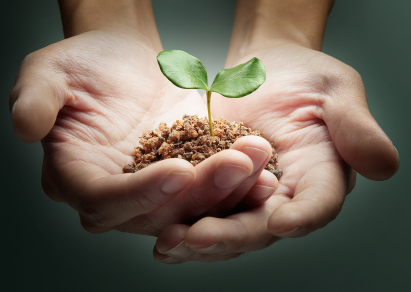
On the global scale we can see that Business As Usual is actually causing the Great Unraveling. It is the idea that we can continue to carry on with this extractive economy and endlessly plunder the earth and despoil the water and the air and that it’s somehow ok because it’s ‘what we’ve always done.’ This circular logic identifies the quarterly bottom line as the sole indicator of success even though it’s a completely fictitious concept that relies on never accounting for the true costs of industry.
As parents who want to raise healthy children it’s important to become aware of how this same logic plays out in the microcosm of our households and our childrens’ lives.
Our own lives and the lives of our kids are reflections of the world. Many parents get drawn into the Business As Usual trap of spending all their energy and focus on giving kids what they ‘want’ and trying to help them feel ‘normal.’ But ‘normal’ is doomed and their desires are often manipulated by the same industry that is destroying the Earth and their chance at a future. If we just try to carry on with Business As Usual we are sealing the deal for the symptoms of the Great Unraveling to take root in their lives. As parents we can choose to pay attention to these patterns and interrupt them right in the midst of our own households and relationships with our children.
We have to do something different if we want different results.
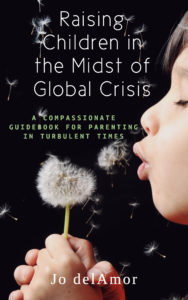
This is an excerpt from the forthcoming book Raising Children in the Midst of Global Crisis: A Compassionate Guidebook for Parenting in Turbulent Times by Jo delAmor
Visit this page for more information about this book and to sign up to be notified when it is published and available for sale.

